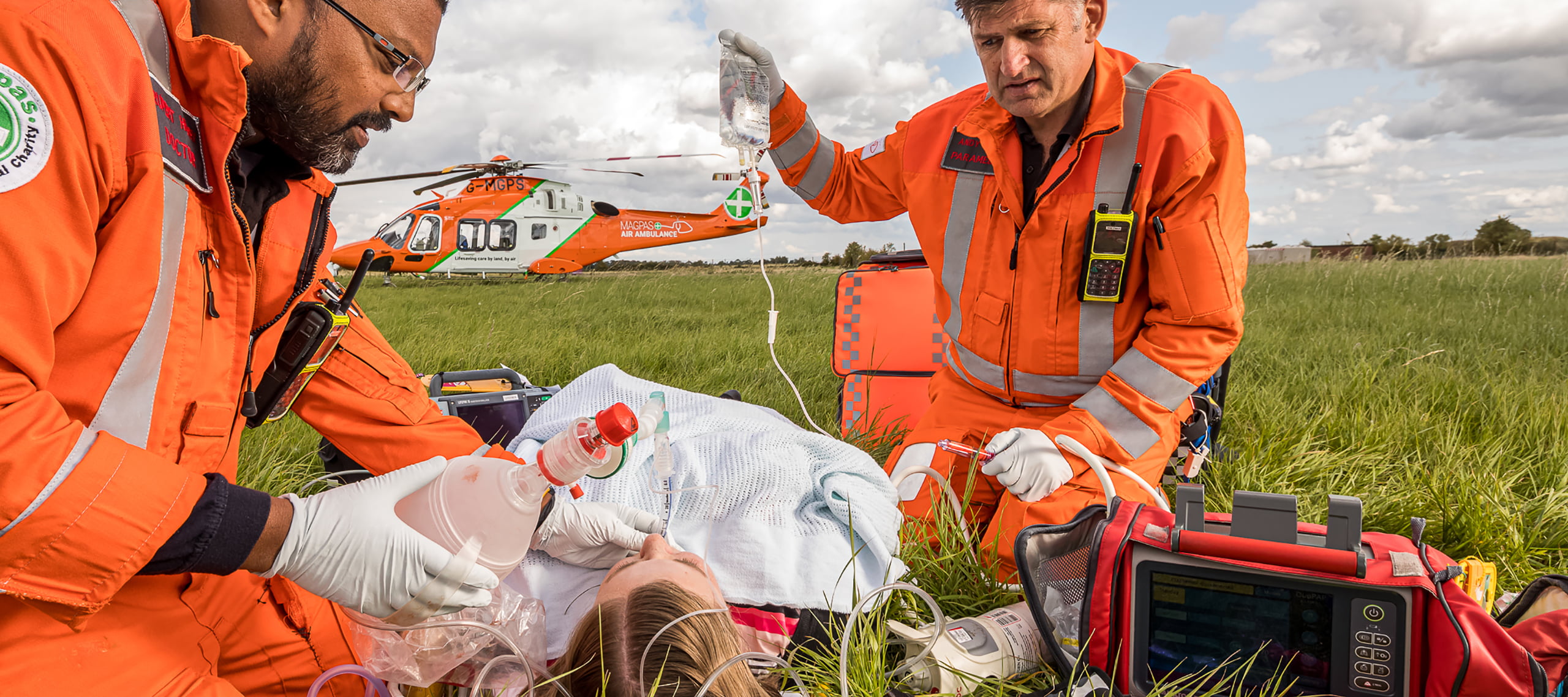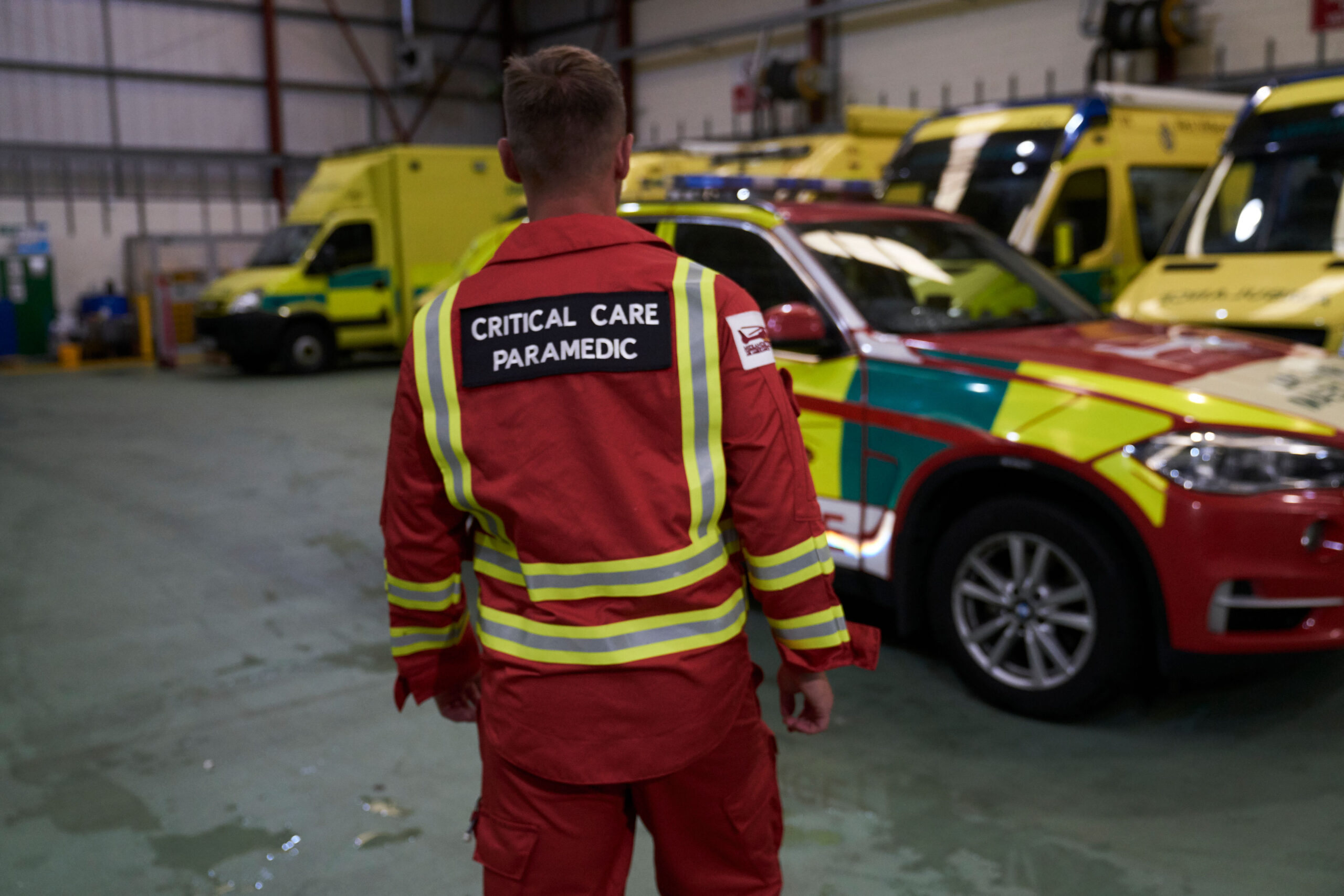
The call comes in during the early hours—a high-acuity trauma, multiple casualties, motorway location. As an Advanced Paramedic in Critical Care, I know this isn’t just another tasking; it’s a moment where every decision will matter.

Arrival at the Scene: The flashing lights cut through the darkness as I pull up. The environment is noisy—bystanders distressed, emergency services already working hard, and patients in critical condition. My first instinct is to pause, breathe, and assess. Leadership begins with clarity, even when the world around you feels like it’s spinning.
Rapid Assessment and Prioritisation: Time is our enemy. I scan the scene: one patient with life-threatening injuries and deteriorating rapidly, another with a suspected spinal injury, and a third unaccounted for. The decisions I make now will ripple through the entire chain of care.
- Who needs immediate intervention?
- What resources do we have?
- How do I coordinate effectively with the team?
Clinical leadership means balancing autonomy with collaboration. I delegate tasks to paramedics and liaise with fire and police teams, ensuring safety and efficiency. Every instruction must be clear, calm, and confident—panic is contagious, but so is composure.
Making Difficult Decisions: There’s no luxury of time for endless deliberation. I decide a course of action and share my mental model with the team. Meanwhile, I request further Critical Care support to assist. This incident is complex and will be protracted. Alas, my colleagues are attending another serious tasking. These choices weigh heavy, but resilience is about trusting your training and experience.
Maintaining Clinical Leadership: Leadership isn’t just about clinical skill—it’s about presence. I keep communication open, reassure the team, and maintain situational awareness. When fatigue and stress creep in, I remind myself: If I falter, others will too. My role is to anchor the team in confidence and clarity.
Resilience in the Aftermath: Once the patients are handed over at the hospital, the adrenaline fades, and the emotional weight sets in. Sadly, one of the patients will not be going home. The other, their life changed forever. Debriefing with the team is essential—not just for learning, but for wellbeing. Resilience isn’t about being unaffected; it’s about processing, reflecting, and preparing for the next challenge.

Critical care in the pre-hospital environment is a blend of science, art, and humanity. It demands technical excellence, but also leadership, empathy, and resilience. Every scene is a test—not just of skill, but of character.
Leadership Tips for High-Stakes Situations: Clinical leadership in the pre-hospital environment isn’t just about technical skill—it’s about mindset and behaviour. Here are practical strategies:
- Pause Before Acting
Take a breath. A few seconds of calm assessment can prevent costly mistakes. - Communicate with Clarity
Use short, direct instructions. Confirm understanding. Avoid jargon when stress levels are high. - Delegate Effectively
Trust your team. Assign tasks based on strengths and experience. Leadership is about coordination, not control. - Maintain Situational Awareness
Keep scanning the scene. Conditions change fast—don’t get tunnel vision on one patient. - Lead by Example
Your tone and body language set the standard. Calm breeds calm; panic breeds chaos.
Resilience Strategies for Critical Care Practitioners: Resilience isn’t about being unaffected—it’s about recovery and sustainability. Here’s what works:
- Structured Debriefing: After every major incident, talk through what happened. Share successes and lessons learned.
- Peer Support: Lean on colleagues. They understand the unique pressures of the role better than anyone.
- Reflective Practice: Take time to process emotionally and clinically. Journaling or structured reflection can help.
- Self-Care Beyond the Shift: Sleep, nutrition, and physical activity aren’t luxuries—they’re survival tools.
- Professional Development: Confidence grows with competence. Regular training reinforces decision-making under pressure.
In critical care, leadership and resilience are as vital as clinical skill. Every scene is unpredictable, but your ability to stay composed, lead decisively, and recover afterwards defines not just your performance—but your longevity in this demanding role.
